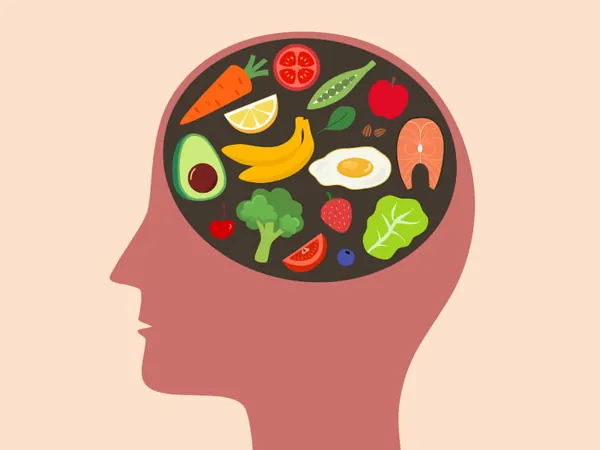
Unlocking Your Mind: The Surprising Impact of Diet on Brain Health!
2024-09-27
Unlocking Your Mind: The Surprising Impact of Diet on Brain Health!
A vast array of research demonstrates that what goes on our plates has profound effects not just on our physical health but significantly on our brain health as well. From reducing heart disease to avoiding strokes, the food we consume is critical for maintaining overall well-being. Excitingly, scientists are now uncovering that what benefits the heart may also be beneficial for the brain, revealing the interconnectedness of bodily health and cognitive function.
So, can our dietary choices be the key to unlocking better brain health? Experts assert a resounding "yes," urging that it's never too early—or too late—to start improving our diets for better brain function.
Nourishing the Brain from the Start
The influence of nutrition begins in the womb. Dr. Rebecca MacPherson, a renowned authority in health sciences at Brock University, highlights that a mother’s diet during pregnancy is crucial for fetal brain development. For instance, folate (vitamin B9) is vital for prenatal brain growth; deficiencies can lead to severe birth defects. Foods rich in folate include leafy greens, legumes, and certain fruits, while prenatal vitamins serve as an essential safety net.
Moreover, maternal diets high in fats can predispose children to a range of mental health issues later in life, such as anxiety or disorders on the autism spectrum. Omega-3 fatty acids are particularly remembered as brain boosters, essential for fetuses and available in rich supply from cold-water fish and nuts. Nutrition during pregnancy is just the beginning; its impact extends throughout childhood and into adulthood.
Powering Growth in Childhood and Adolescence
The first two years of life are critical. Studies show that infants fed with omega-3-enriched formula perform better in problem-solving tasks compared to those who aren't. During these essential formative years, children's diets provide the nutrients needed for brain cell growth and myelination—which is instrumental in developing a well-functioning nervous system.
Poor nutrition significantly hampers cognitive performance in children, causing potential long-term consequences in academics and social skills. Replacing harmful simple carbohydrates with healthier complex variants, alongside ample fish and fruits, has been linked to remarkable improvements in memory function.
Sustaining Cognitive Function into Adulthood
A well-balanced diet remains paramount into adulthood. Insufficient omega-3 levels correlate with cognitive declines and mood disorders, while diets rich in these essential fats support enhanced memory, learning, and overall cognitive health. Dr. MacPherson emphasizes that diets high in processed foods and sugars can lead to significant weight gain and systemic diseases, subsequently increasing risks of cognitive decline and dementia.
Healthy eating isn't just about choosing the right foods; it's about following beneficial dietary patterns. Research increasingly favors Mediterranean, DASH (Dietary Approaches to Stop Hypertension), and the innovative MIND diet, all designed to promote brain health. These diets focus on a variety of whole foods rather than individual superfoods, showing that a combination of healthy options is best.
Overcoming Barriers to Healthy Eating
Transitioning to a healthier diet can be challenging. According to Dr. Kevin Volpp from the University of Pennsylvania, nearly 90% of Americans consume excessive sodium while getting too little produce. While knowledge about healthy eating is widespread, issues such as access to nutritious foods and the convenience of unhealthy options muddy the waters.
The temptation for immediate gratification often guides our choices, leading us away from nutritious options. However, maintaining an awareness that every choice matters can shift our perspective, guiding us towards healthier eating patterns that support our well-being.
Conclusion: The Path to Better Brain Health
Good brain health is achievable through disciplined dietary choices and consistent habits. It takes engagement and commitment to select healthier foods consistently as we age. Emphasizing a balanced diet rich in omega-3s, fruits, vegetables, and lean sources of protein could be the key not only to a healthier heart but to a more resilient and sharper mind.
Are you ready to take your first step towards a brain-boosting diet that will keep you sharp for years to come? Don’t wait—your mind will thank you!



 Brasil (PT)
Brasil (PT)
 Canada (EN)
Canada (EN)
 Chile (ES)
Chile (ES)
 España (ES)
España (ES)
 France (FR)
France (FR)
 Hong Kong (EN)
Hong Kong (EN)
 Italia (IT)
Italia (IT)
 日本 (JA)
日本 (JA)
 Magyarország (HU)
Magyarország (HU)
 Norge (NO)
Norge (NO)
 Polska (PL)
Polska (PL)
 Schweiz (DE)
Schweiz (DE)
 Singapore (EN)
Singapore (EN)
 Sverige (SV)
Sverige (SV)
 Suomi (FI)
Suomi (FI)
 Türkiye (TR)
Türkiye (TR)